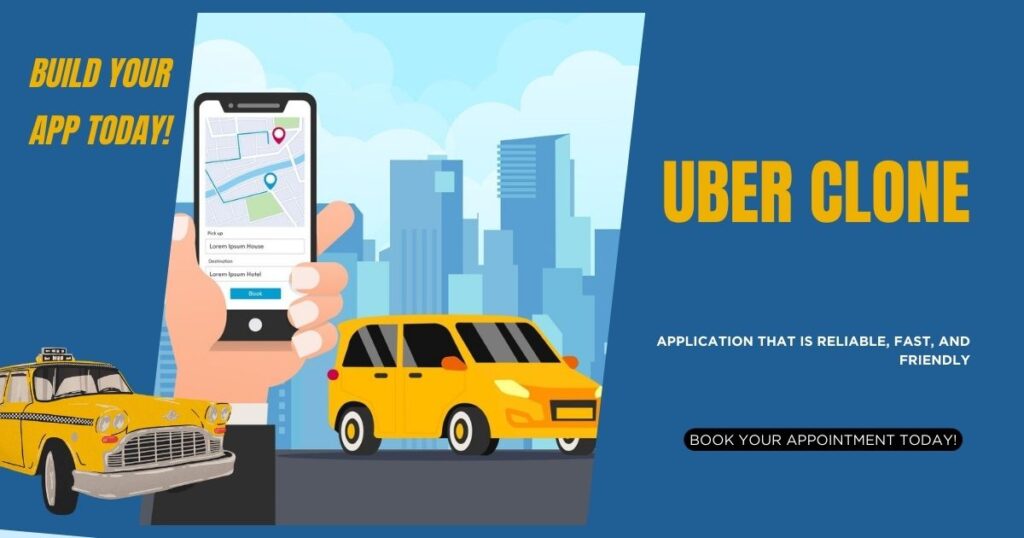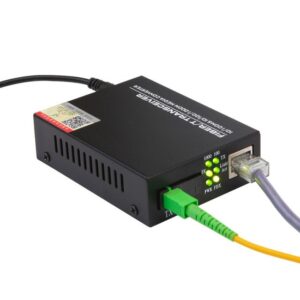
Launching a transportation business today requires more than just a fleet of vehicles and drivers—it demands a robust digital platform that can manage bookings, payments, routes, and customer relationships seamlessly. For entrepreneurs looking to enter the ride-hailing market, building such a platform from scratch can be time-consuming, expensive, and technically challenging. This is where white-label Uber clone apps come into play as a game-changer.
The concept of an uber clone—a ready-made application mimicking the features of popular ride-hailing platforms like Uber—offers transportation businesses a strategic shortcut. It allows entrepreneurs to deploy a fully functional taxi booking app with minimal development time and cost. Understanding how these white-label Uber clone solutions work and why they are favored by startups and established companies alike can help you make an informed decision in your journey toward market entry and growth.
What Exactly Is a White-Label Uber Clone App?
A white-label Uber clone app is essentially a pre-built software solution that replicates the core functionalities of Uber and other leading ride-hailing platforms. Unlike custom-built apps, these clones are developed with a modular architecture that allows companies to rebrand, customize, and launch the app under their own name. This gives entrepreneurs the advantage of entering the market with a professional and proven platform, while saving time on design, development, and testing.
Unlike a fully custom solution that can take months or years to develop, taxi booking app development using a white-label solution significantly reduces the time to market. This can be especially critical in highly competitive regions or emerging markets where speed and agility are crucial to capturing early adopters.
Why Transportation Entrepreneurs Choose White-Label Uber Clone Solutions
The transportation industry is evolving rapidly, and digital transformation has become the key to staying competitive. While creating an app from the ground up might seem like a tailor-made option, there are several business and technical reasons why entrepreneurs prefer white-label Uber clone apps:
1. Cost Efficiency
Building an app with complex features like real-time tracking, payment integration, driver management, and user reviews requires a significant investment. Many startups simply do not have the budget to hire large development teams or outsource costly custom software projects. White-label Uber clone solutions eliminate this barrier by offering a ready-made framework that can be purchased at a fraction of the cost of a full custom build.
2. Faster Time to Market
Speed matters in the transportation sector. Markets can change quickly, and being first to launch can capture a substantial customer base. With a white-label Uber clone app, businesses can skip months of coding and testing. This accelerates the launch process and helps entrepreneurs focus more on marketing, partnerships, and service quality instead of technical development.
3. Proven Technology Stack
Many on-demand app development companies build their white-label Uber clones on tried-and-tested technologies. This means the apps are optimized for performance, security, and scalability right out of the box. Entrepreneurs can therefore avoid common pitfalls such as bugs, downtime, and security vulnerabilities that plague new apps.
4. Customizability and Branding
Although the core of a white label Uber clone is standardized, most providers allow significant customization. Entrepreneurs can modify the user interface, add unique features, integrate specific payment gateways, or adapt the app to local regulations. This flexibility enables businesses to differentiate themselves while leveraging the power of a proven model.
5. Focus on Business Growth
By reducing the burden of app development, entrepreneurs can focus on what truly matters: customer acquisition, driver onboarding, and partnership development. The technical complexities are handled by the development provider, enabling transportation businesses to concentrate on growth strategies, customer experience, and market expansion.
Key Features of a Robust White-Label Uber Clone App
When evaluating uber clone app solutions, it’s important to look for a feature set that covers the needs of all stakeholders—riders, drivers, and administrators. While different providers may offer variations, here are some common features that form the foundation of a successful taxi booking app:
- Real-time GPS tracking: Riders can see driver locations, estimated arrival times, and routes.
- Multiple payment options: Including credit/debit cards, wallets, and cash payments.
- Driver and rider profiles: With ratings and reviews for transparency and trust.
- Ride scheduling and booking: Options for immediate or future rides.
- Fare estimation: Based on distance, time, and surge pricing.
- In-app chat and calls: For seamless communication between riders and drivers.
- Admin dashboard: For managing users, rides, payments, and analytics.
- Push notifications: To keep users informed about ride status and promotions.
- Multi-language and multi-currency support: For regional adaptability.
The Role of an On-Demand App Development Company
Many businesses turn to an on-demand app development company to acquire and customize their white-label Uber clone. These companies bring expertise in app development, UI/UX design, and system integration, ensuring the solution is tailored to the client’s specific market needs.
Such development partners often provide ongoing technical support, maintenance, and feature upgrades, which are critical for staying competitive and adapting to changing user expectations. Moreover, by collaborating with a professional development company, transportation entrepreneurs can mitigate risks and ensure compliance with regional regulations related to digital payments, data privacy, and driver licensing.
How to Choose the Right White-Label Uber Clone Solution
Selecting the right white-label Uber clone requires careful consideration beyond price. Here are some business-focused factors to keep in mind:
1. Scalability
The transportation business can grow quickly. Ensure the app’s architecture supports adding new features, increasing the user base, and handling peak loads without sacrificing performance.
2. Customization Options
Look for solutions that allow you to tailor branding, UI, and backend settings. This flexibility will be essential for adapting the app to your unique business model and customer preferences.
3. Integration Capabilities
Your app should integrate smoothly with payment gateways, mapping services, SMS gateways, and CRM systems. This ensures a seamless user experience and operational efficiency.
4. Security Standards
Data protection is non-negotiable. Verify that the app uses industry-standard encryption, secure payment protocols, and complies with local data protection laws.
5. Support and Maintenance
Launching is just the beginning. Choose a provider that offers timely support, bug fixes, and regular updates to keep your app reliable and competitive.
Beyond Ride-Hailing: Versatility of Uber Clone Apps
Interestingly, the concept of an uber clone app is not limited to passenger transport. Many businesses have repurposed white-label Uber clones for other on-demand services, such as logistics, food delivery, healthcare transport, and even courier services. This versatility means that once you invest in a proven taxi booking app development solution, you may have the foundation to diversify your offerings and tap into new revenue streams.
Conclusion
For transportation entrepreneurs aiming to launch a competitive ride-hailing service without the hefty costs and lengthy timelines of custom app development, white-label Uber clone apps offer a compelling solution. They combine the advantages of cost-efficiency, rapid deployment, and proven technology with the flexibility needed to build a unique brand and service offering.
Choosing the right uber clone app through a trusted on-demand app development company can empower your business to focus on market growth and customer satisfaction while leveraging technology that’s ready to scale. Whether you’re a startup entering the market or an established company seeking digital transformation, white-label Uber clones represent the fast-track to success in today’s dynamic transportation landscape.




